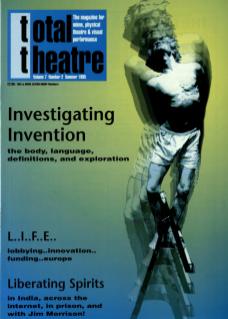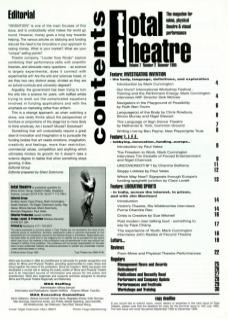Invention is one of the main focuses of this issue, and is undoubtedly what makes the world go round. However, money goes a long way towards helping. The various articles on lobbying and funding discuss the need to be innovative in your approach to raising money. What is your market? What are your ‘unique’ selling points?
Theatre company Louder than Words explore combining their performance skills with scientific theories, and stimulate many questions – as science is largely experimental, does it connect with experimental art? Are the arts and sciences fused, or are they two very distinct areas, divided as they are on school curricula and university degrees?
Arguably, the government has been trying to turn the arts into a science for years, with baffled artists trying to work out the complicated equations involved in funding applications and with the emphasis on marketing rather than artform.
This is a strange approach, as, when watching a show, one rarely thinks about the perspectives of furniture or proportions of the stage but is more likely to think emotively. Am I bored? Moved? Disturbed?
Something that will undoubtedly require a great deal of innovation and imagination is to persuade the funding bodies that art needs emotions, imagination, creativity and feelings, more than restriction, commercial values, competition and anything which ultimately hinders its growth; for it doesn't take a science degree to realise that when something stops growing, it dies.

